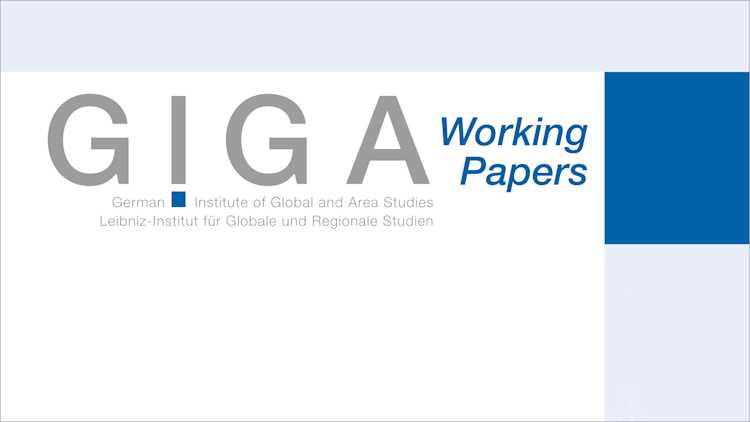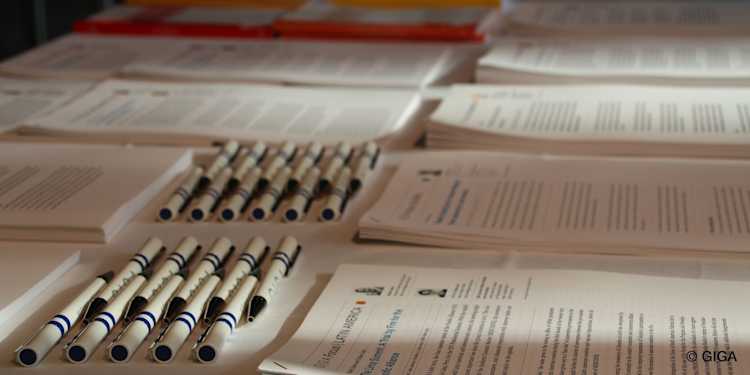- Home
- Publications
- GIGA Focus
- Civilizing the World Order? The Scope and Potential of Transnational Norm-building Networks
GIGA Focus International Edition English
Civilizing the World Order? The Scope and Potential of Transnational Norm-building Networks
Number 1 | 2010 | ISSN: 1862-3581
Civil society organizations, epistemic communities, and lobby groups—what we call transnational norm-building networks—are influencing the global economy and global politics more than ever before. We argue that such transnational norm-building networks, in contrast to the dominating executive intergovernmental elites and democratically deficient supranational bodies, hold the scope and potential for a more civilized world order. They are—together with states and international governmental organizations—creating new norms; they are setting standards. They associate the voice of stakeholders with decision-making processes, thus leading to an increase in legitimate world governance.
Analysis
A closer look reveals several signifi cant patterns of global politics and economics in the current financial and economic crisis:
Experience has shown that in times of crisis, expectations of state crisis management are particularly high. This was the case in the period 1929–1931 and in the immediate post-war period; it is no different in the current global economic crisis. However, this reliance exclusively on the nation-state’s creative capacity and on interstate cooperation is misleading because as a result, the risks of the action based on this reliance are not adequately taken into consideration.
The development opportunities offered by new scenarios and actor constellations— transnational non-state actors, in particular—are not recognized.
Today’s world must be seen and evaluated as being networked. Transnational networks play a greatly underestimated role in the globalized world, the global economy and global politics.
Consequently, the world’s nation-states are only one type of actor among many.
Globalization and the erosion of the importance of territorial borders represent, on the one hand, threats to established democratic achievements, as the “bad networks” of transnational organized crime, among others, demonstrate. On the other hand, they open up space for a new, civil world order.
In this phase of increasing networking, it is essential to establish the foundations for the legitimacy of transnational actors and for eff ective norms. This would be a contribution to the democratic civilizing of the world.
Footnotes
Regional Institutes
Research Programmes
How to cite this article
Jakobeit, Cord, Robert Kappel, and Ulrich Mückenberger (2010), Civilizing the World Order? The Scope and Potential of Transnational Norm-building Networks, GIGA Focus International Edition English, 1, Hamburg: German Institute for Global and Area Studies (GIGA), http://nbn-resolving.de/urn:nbn:de:0168-ssoar-275316
Imprint
The GIGA Focus is an Open Access publication and can be read on the Internet and downloaded free of charge at www.giga-hamburg.de/en/publications/giga-focus. According to the conditions of the Creative-Commons license Attribution-No Derivative Works 3.0, this publication may be freely duplicated, circulated, and made accessible to the public. The particular conditions include the correct indication of the initial publication as GIGA Focus and no changes in or abbreviation of texts.
The German Institute for Global and Area Studies (GIGA) – Leibniz-Institut für Globale und Regionale Studien in Hamburg publishes the Focus series on Africa, Asia, Latin America, the Middle East and global issues. The GIGA Focus is edited and published by the GIGA. The views and opinions expressed are solely those of the authors and do not necessarily reflect those of the institute. Authors alone are responsible for the content of their articles. GIGA and the authors cannot be held liable for any errors and omissions, or for any consequences arising from the use of the information provided.





